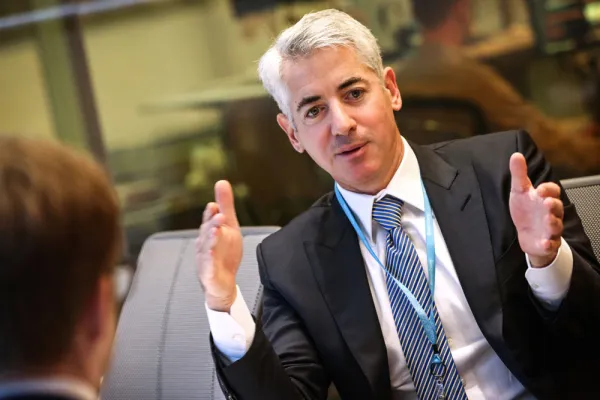The Herbalife story gets juicier every day. On Wednesday Dan Loeb’s third Point disclosed it owned 8.24 percent of the controversial health care products company. Significantly, it made the filing using a 13G, which means it is passive. The disclosure comes one day before the company’s planned presentation to rebut Pershing Square manager Bill Ackman’s December diatribe, in which he called the company a pyramid scheme whose stock is headed to zero. Other hedgies to publicly proclaim long positions are Robert Chapman and Australian hedge fund manager John Hempton of Bronte Capital Management CIO, who specializes in short selling.
“Herbalife is a classic ‘compounder’ – a well-managed company that sustains consistent top-line growth, has a leading market position, and steadily increases margins, earnings per share and free cash flow while demonstrating shareholder-friendly behavior,” Loeb writes in his fourth quarter letter recently sent to clients. He also picks apart Bill Ackman’s case to short the stock, in part based on the notion that the company is a pyramid scheme. “We do not believe it has merit,” Loeb writes. “The short thesis rests on the notion that the FTC has been asleep at the switch, missed a massive fraud for over three decades, and will shortly awaken (at the behest of hedge fund short seller) to shut down the company.” He said this thesis is preposterous, in part because the FTC is sensitive to these kinds of frauds. As for Ackman’s claims that Herbalife’s products are commodities sold at inflated prices, he compares this to Starbucks and asserts the coffee chain is not a fraud even though customers can find cheaper products at competitors.
••• In yet more Herbalife news, The Wall Street Journal reported Wednesday that the Securities and Exchange Commission is looking into the company. In any case, the stock closed at $39.95, up more than 4 percent on the day.
••• Loeb’s Third Point also took a new position in Morgan Stanley during the fourth quarter, asserting it is in the early stage of a turnaround. “The bank’s investment banking advisory and equity sales and trading businesses … have consistently won top three market shares and are impressively positioned,” he writes. “Although MS has historically failed to capitalize on its strengths, its leadership currently is focused on growing its good businesses while consolidating and successfully fixing its previously troubled Wealth Management business.” A published report on Wednesday said Morgan Stanley plans to cut 1600 jobs, or 3 percent of its total workforce.
••• Loeb also took a new position in Tesoro, a refining and marketing company. He basically believes investors have undervalued its assets and impending transactions/projects, and the company has a shareholder-friendly management team. He concedes it is somewhat odd to invest in a stock after it rose 68 percent in a quarter. But, he insists the company remains misunderstood by the market. This is underscored by the stock’s extremely wide price target range of $35 to $84 by Wall Street’s sell side.
••• Is Steve Cohen having trouble retaining key people amid government probes into its trading activities? It’s very possible. According to one report, SAC Capital has lifted the bonuses it pays to its portfolio managers by three percentage points. Recipients include managers in the equity, macro and commodity strategies. Bonus usually work out to 15 percent to 25 percent of the profits generate by the individual, according to the report.
••• The folks at Dyal Capital Partners have been pretty busy of late. The Newberger Berman private equity fund bought a minority stake in MKP, its fifth hedge fund investment. MKP focuses mostly on global macro and credit. Earlier this month, it took a passive stake in Scopia, an alternative asset management firm with $3.4 billion of assets in long/short equity strategies. Dyal plans to purchase minority interests in a portfolio of about 12 to 15 hedge fund management companies.
••• The disparity in performance among hedge funds in the top decile and funds in the bottom decile widened in the 12-month period ended in September. According to HFR, the average top decile fund generated a 34 percent gain while the bottom decile fund lost, on average, 18.9 percent. The dispersion between the top and bottom deciles works out to nearly 53 percent.






